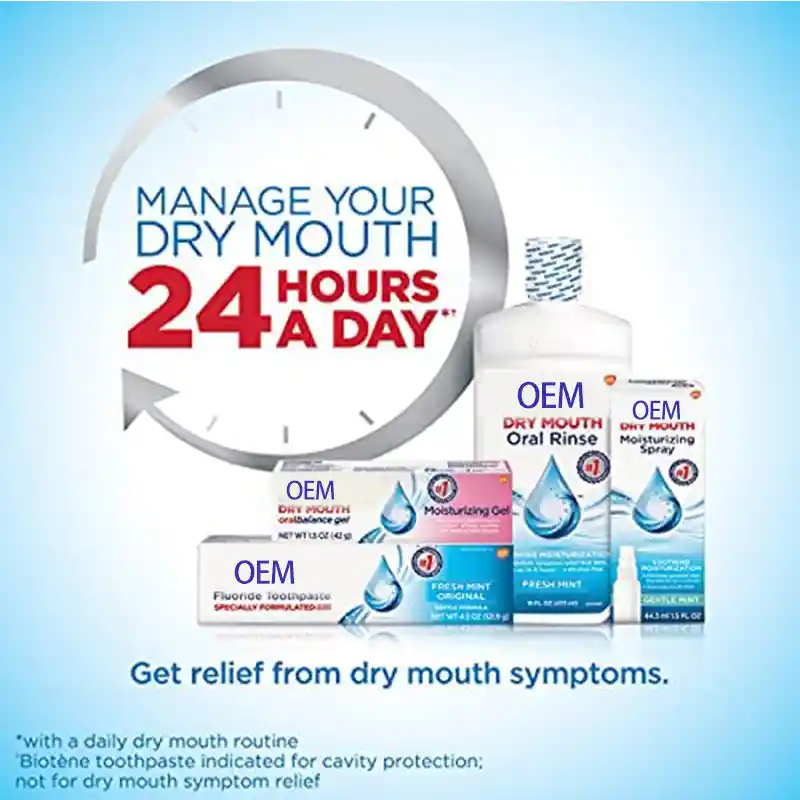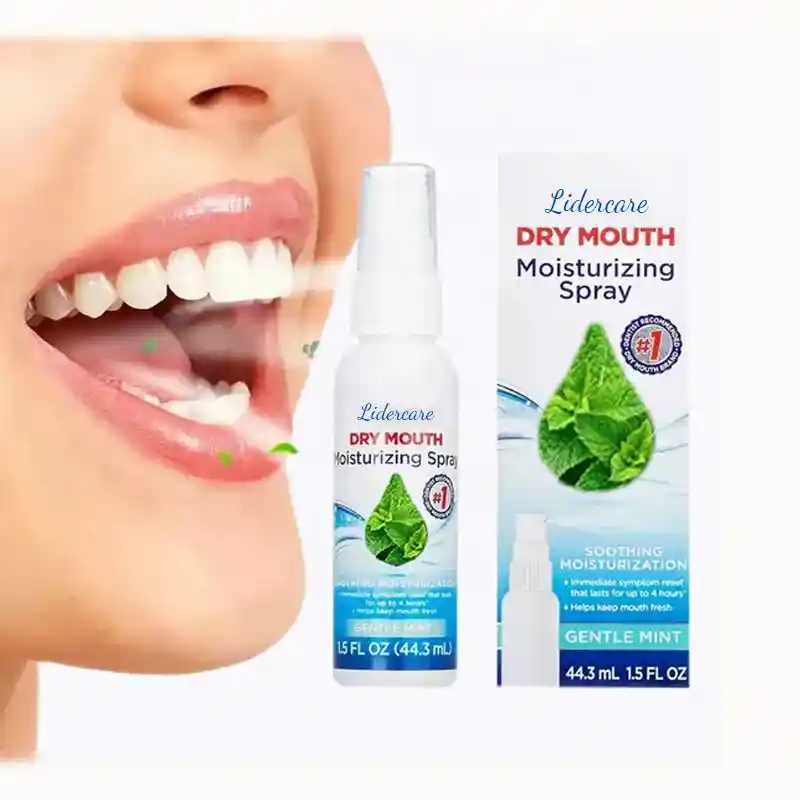How Mouth Spray Can Be a Game-Changer for Dry Mouth Sufferers
Introduction
Dry mouth, also known as xerostomia, is more than just a minor inconvenience; it’s a condition that can significantly affect one’s quality of life. Characterized by a lack of sufficient saliva in the mouth, dry mouth can lead to discomfort, difficulty in speaking and swallowing, and an increased risk of oral infections and dental issues. In recent years, mouth sprays have emerged as a promising solution to alleviate the symptoms of dry mouth, offering relief and improving oral health. This article delves into the causes of dry mouth, the benefits of mouth sprays, and how they work to enhance the lives of those affected by this condition.
Understanding Dry Mouth
A dry mouth occurs when the salivary glands fail to produce enough saliva to moisten the mouth. This condition can stem from various causes, including:
1. Medications: Many prescription and over-the-counter medications list dry mouth as a side effect. Antihistamines, decongestants, pain relievers, diuretics, and antidepressants are common culprits.
2. Aging: As people age, the likelihood of experiencing dry mouth increases. This is partly due to age-related changes in the salivary glands and the higher likelihood of taking multiple medications.
3. Medical Conditions: Certain health conditions like diabetes, Alzheimer’s, and autoimmune disorders like Sjögren’s syndrome can cause dry mouth.
4. Cancer Treatment: Radiation therapy for head and neck cancers and chemotherapy can damage salivary glands, reducing saliva production.
5. Lifestyle Factors: Smoking, chewing tobacco, and consuming alcohol can contribute to dry mouth.
Symptoms of Dry Mouth
The symptoms of dry mouth can range from mildly irritating to severely debilitating. Common symptoms include:
- A sticky, dry feeling in the mouth
- Frequent thirst
- Sore throat
- Difficulty chewing, swallowing, or speaking
- Cracked lips
- Mouth sores
- Bad breath
- Altered taste sensation
- Increased risk of dental decay and gum disease
The Role of Saliva in Oral Health
Saliva plays a crucial role in maintaining oral health. It keeps the mouth moist but also aids in digestion, helps protect teeth from decay, prevents infection by controlling bacteria and fungi in the mouth, and facilitates chewing and swallowing. Without adequate saliva, individuals are more susceptible to oral health problems, making effective management of dry mouth essential.
Mouth Sprays: A Viable Solution
Mouth sprays designed to combat dry mouth can be a game-changer for individuals suffering from xerostomia. These sprays provide immediate moisture and stimulate saliva production, thereby addressing the symptoms and underlying issues associated with dry mouth. Here are some key benefits of using mouth sprays:
1. Immediate Relief: Mouth sprays offer instant moisture, providing quick relief from the uncomfortable symptoms of dry mouth.
2. Convenience: These sprays are easy to carry and use, making them a convenient solution for managing dry mouth throughout the day.
3. Improved Oral Health: Mouth sprays help reduce the risk of dental problems such as cavities and gum disease by keeping the mouth moist.
4. Enhanced Quality of Life: Alleviating dry mouth symptoms can improve overall quality of life, allowing individuals to speak, eat, and sleep more comfortably.
How Mouth Sprays Work
Mouth sprays typically contain ingredients that mimic natural saliva, providing lubrication and moisture. Common ingredients include:
- Water: The primary component for hydration.
- Glycerin: A moisturizing agent that helps retain moisture.
- Xylitol is a sugar alcohol that adds sweetness, stimulates saliva production, and helps reduce the risk of cavities.
- Fluoride: Often included to strengthen teeth and prevent decay.
- Calcium and Phosphate: Minerals that aid in remineralizing teeth and enhancing enamel strength.
Using Mouth Sprays Effectively
For optimal results, it’s essential to use mouth sprays correctly. Here are some tips for effective use:
1. Follow Instructions: Always follow the toothpaste manufacturer‘s instructions regarding dosage and frequency of use.
2. Consistency: Use the spray regularly, especially after meals and before bed, to maintain adequate moisture levels in the mouth.
3. Complementary Care: Combine mouth spray with other dry mouth management techniques, such as staying hydrated, using a humidifier at night, and avoiding tobacco and alcohol.
4. Dental Hygiene: Maintain good oral hygiene practices, including brushing twice daily with fluoride toothpaste, flossing daily, and visiting the dentist regularly.
Selecting the Right Mouth Spray
With numerous mouth sprays on the market, choosing the right one can be overwhelming. Here are some factors to consider when selecting a mouth spray:
1. Ingredients: Look for sprays with ingredients that provide adequate moisture and support oral health.
2. Flavor: Choose a flavor that you find pleasant, as this will encourage regular use.
3. Sensitivity: If you have sensitive teeth or gums, use a spray formulated for sensitive mouths.
4. Recommendations: Consult with your dentist or healthcare provider for recommendations tailored to your specific needs.
Try Lidercare Now!
We Help You Launch New Products, And Continue To Grow. Try Us With 20% Off Your First Order!
Additional Tips for Managing Dry Mouth
In addition to using mouth sprays, several other strategies can help manage dry mouth:
- Stay Hydrated: Drink plenty of water throughout the day to help keep your mouth moist.
- Chew Sugar-Free Gum: Chewing gum can stimulate saliva production. Opt for sugar-free varieties to avoid increasing your risk of cavities.
- Avoid Caffeine: Caffeine can contribute to dry mouth, so limit your caffeinated beverage intake.
- Use a Humidifier: A humidifier, especially at night, can add moisture to the air and help keep your mouth from drying out while you sleep.
- Limit Alcohol and Tobacco: Both alcohol and tobacco can exacerbate dry mouth symptoms, so reducing or eliminating their use can be beneficial.
- Eat Moist Foods: Incorporate foods with high moisture content, such as fruits and vegetables, into your diet.
Conclusion
A dry mouth is a condition that can significantly impact one’s daily life and oral health. However, with the right management strategies, including using mouth sprays, individuals can find relief from uncomfortable symptoms and reduce the risk of associated dental problems. Mouth sprays offer a convenient and effective solution, providing immediate moisture and stimulating saliva production. By understanding the causes of dry mouth and employing a comprehensive approach to management, those affected can improve their quality of life and maintain better oral health. Whether you are experiencing dry mouth due to medications, medical conditions, or lifestyle factors, mouth sprays can be a valuable tool in your oral care routine.
Table of Contents
Awesome! Share to:
Latest Blog Posts
Check out the latest industry trends and take inspiration from our updated blogs, giving you a fresh insight to help boost your business.





